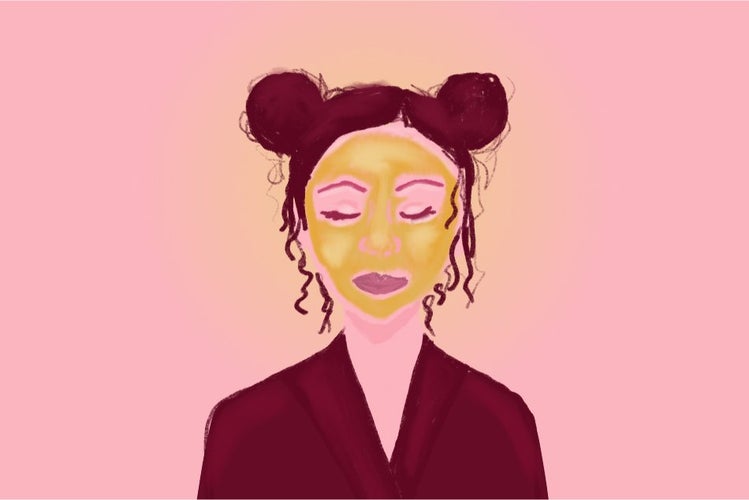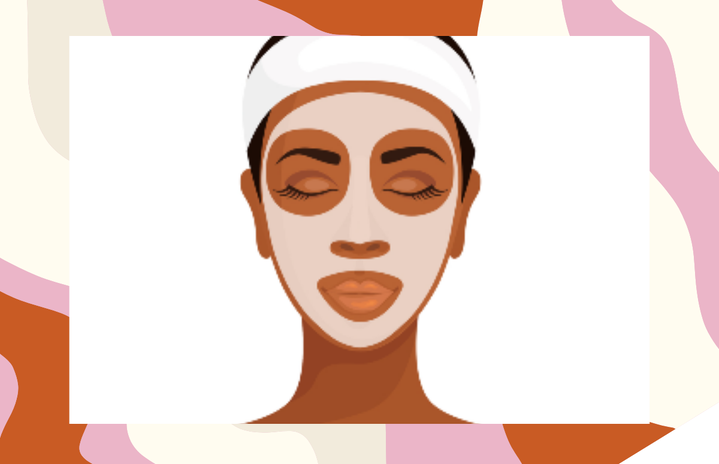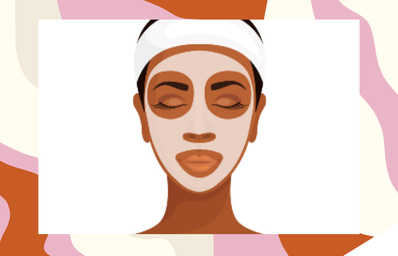If you’re obsessed with viral TikTok trends like me, you’ve probably heard of “slugging,” a popular skincare hack intended to increase moisture and prevent water loss in your skin. #Slugging is trending on TikTok and currently has over 152,000 views, with creators and influencers claiming that the hack has worked wonders for them after adding it to their nighttime beauty routine. All over TikTok, you’ll find people “slugging” with their favorite skincare products, sharing their honest thoughts, and crossing their fingers for a clear, healthy look.
I never could’ve guessed that a skincare trend that got its nickname name from actual slugs would go viral on social media, yet here we are. Thankfully, though, the act has nothing to do with actual slugs. Slugging is easy to try and only requires one basic item; simply use your preferred ointment-based product (popular ones include Vaseline, Cetaphil Healing Ointment, CeraVe Healing Ointment, and Aquaphor Healing Ointment) as the final step in your skincare routine, and voila!
Over time, slugging is supposed to help you achieve perfectly-hydrated skin. So, after days of seeing the trend on my For You Page, I decided to try it myself. Here’s what I learned and why the skincare hack may not be as beneficial as you think, according to dermatologists.
What is the “slugging” trend, and who is it meant for?
Slugging, which was reportedly coined by the K-Beauty world and popularized on Reddit, is the act of coating your face in Vaseline or another petrolatum moisturizer before bed and waking up with fresh, dewy skin. But according to Dr. Courtney Rubin, a board-certified dermatologist, and the Co-Founder and Chief Medical Officer at Fig.1 Beauty, slugging isn’t well-suited for every skin type. In fact, slugging may have an irritating effect on those with oily or acne-prone skin.
“Oily or acne-prone skin requires ingredients that can help to regulate oil production, clear out blocked pores, and reduce acne-causing bacteria,” Dr. Rubin tells Her Campus. “Slugging doesn’t accomplish any of these tasks. Rather than allowing the skin to breathe, slugging would lock excess oil and bacteria into the skin, exacerbating breakouts.”
For dry skin, however, slugging can be extremely beneficial — especially in the winter months, according to Dr. Rubin. “The cold air and dry heat are constantly pulling moisture out of your skin, which is why the skin can feel parched,” she says. She also explains that slugging doesn’t necessarily need to be exclusive to the winter months, but that’s when most people will struggle with excessive dryness.
Although I have oily skin, I still wanted to satisfy my TikTok trend-loving heart and try slugging myself. So, I went to the drugstore and purchased a tub of Vaseline Jelly.
on day one, I quickly learned that slugging wasn’t what I expected.
There isn’t a “right” answer for how often you should practice slugging. For dry skin, it can be as often as every day, but for the sake of my oily skin, I thought it would be better to start with twice a week (and I’m so glad I did).
Some important background: the molecular size of petrolatum-based moisturizers is too big to penetrate the skin, so with slugging, your chosen formula actually creates a barrier that “traps” the moisture underneath; thus, preventing moisture from escaping. The first thing I noticed was that my skin didn’t absorb Vaseline as it does with other moisturizers, and for me, this was a peculiar feeling.
On attempt number one, I followed my regular nighttime skincare routine, then added a thin layer of Vaseline to my face right before bed. The result: I truly felt like a glazed donut, and could barely find a comfortable position to lay in since it felt like my face was literally sticking to my pillowcase.

The next day, I woke up still looking like a shiny, oily pastry — and immediately wanted to wash my entire face. However, after cleaning my skin and proceeding with my normal morning skincare routine, my face did look more hydrated, so I was happy and ready to try this technique again later in the week.
During my second attempt at slugging, I followed the same exact steps and went straight to bed, albeit struggling a bit with the added stickiness. When I woke up the next day, my oily skin did justice to its name and I discovered a few new acne spots. My skin didn’t look dewy and hydrated like the first day; instead, it was excessively oily and in desperate need of clarifying face wash. Sadly, the slugging trend had the opposite of a glowy effect on my skin.
Dermatologists say that while slugging is popular, it isn’t a necessity.
Dr. Liv Kraemer, a board-certified dermatologist and founder of Dr. Liv Skin Clinic & Dr. Liv Skincare, says that while slugging is a popular trend nowadays, it’s rarely necessary — and she doesn’t actually recommend it. “I’m not a fan of slugging as it really breaks people out,” she says. “I find that often people think they have super dry skin when they don’t. Most of the time, especially in young people, they just have dead skin cells that need to be removed.”
With over 170 thousand followers on TikTok, Dr. Kraemer understands the hype around slugging, even though she’s not a big fan of the technique herself. So, if you do want to try the viral trend, Dr. Kraemer recommends taking a different approach.
“If you want to try slugging I wouldn’t recommend doing it overnight as everyone is doing on TikTok,” she says. “Do it during the day and only on a very, very cold day.”
if you’re concerned about dry skin, audit your skincare products & ingredients.
Dr. Rubin adds that if you’re concerned about your skin, you shouldn’t just rely on slugging for hydration. Instead, she says to closely examine what products are in your beauty cabinet and make sure you’re already hydrating. By adding hydrating ingredients to other steps of your regimen, Dr. Rubin affirms that slugging can help potentialize the hydrating effects of those products and make sure the ingredients are working with your slugging routine, not against it.
“If you’re constantly waking up in the morning with dehydrated skin, take stock of your current nighttime regimen,” she says. “If you feel good about your ingredients, slugging is a great way to help your skin absorb the good stuff while reducing TEWL (transepidermal water loss),” AKA water that evaporates from the skin’s surface.
Dr. Rubin also explains that you should avoid slugging in combination with any active ingredients like retinol, retinoids, alpha-hydroxy acids, or beta-hydroxy acids. “When you apply an occlusive barrier on top of active ingredients, you are also locking in those active ingredients and making them penetrate into the skin deeper. Slugging on top of potentially harsh actives like retinoids or acids can increase the risk of irritation, so be careful!”
PSA: Once your skin is in a healthy state, you can stop slugging.
According to Dr. Rubin, slugging can be a great tool to help you when your skin is going through a super dry phase. However, you don’t need to practice it every single day like TikTokers to achieve balanced skin.
“Once your skin returns to a state of good health, you can retire slugging until the next time your skin feels particularly parched,” she explains. Instead, Dr. Rubin advises her clients to “use a fruit acid/AHA to remove dead skin cells, which will make your skin feel softer and more moisturized than using an occlusive like Vaseline.”
While Dr. Rubin and Dr. Kraemer both agree that ointment-based moisturizers like Vaseline can be great for dryer areas of the body — like your feet, hands, and elbows — it doesn’t necessarily mean you should regularly use a product like this on your face.
It’s worth noting that after my failed slugging experiment, I did try smoothing Vaseline over my elbows, hands, and feet, and the result was significantly better than expected. My face did break out a little after this experiment, but thanks to this expert advice (and my ongoing TikTok addiction), you’ll never catch me with dry elbows, hands, or feet ever again.


